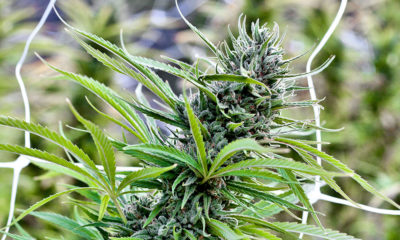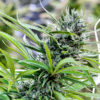
Legal
South Dakota Tribe Votes to Legalize Cannabis
Leaders of the Flandreau Santee Sioux Tribe in South Dakota have announced that they will become the first tribe in the state to legalize selling recreational and medical cannabis on tribal lands.
Their announcement comes just six months after the U.S Justice Department issued a 3-page update to the 2013 Cole Memo, which instructs prosecutors to refrain from going after Native American tribes that chose to cultivate and sell cannabis. The decision on whether to run retail cannabis markets on reservations now rests solely on the individual tribes. All U.S. attorneys have been advised that this is no longer of any concern.
The Flandreau tribe’s executive committee approved the ordinance, opening the reservation up for both medical and recreational use and sales. However, the new venture reportedly comes with some rather extensive restrictions.
Not unlike cannabis markets operated in legal states, the tribal council says cannabis consumption on the reservation will only be allowed for adults 21-years-of-age and older. However, while possession limits remain unclear, a report claims individuals “will be limited to one gram per person” when making cannabis purchases.
The use of medical cannabis will also be allowed under the ordinance and anyone with a recommendation from a doctor will have access to the herb.
While the tribe isn’t entirely sure how they will regulate the newfound industry, they do know it won’t mimic legal states like Colorado. The law will greatly limit the amount of cannabis each person will be allowed to purchase at one time and it will not come with any provisions that allow home cultivation.
“Tribal members who live on the reservation can’t consume it in their home; they can’t purchase it to give to children,” said Seth Pearman, legal counsel for the tribe. “We will still utilize the same criminal codes we did before for people who violate our ordinance.”
The ordinance dictates that the consumption of cannabis will only be permitted in a designated facility. Anyone, including non-tribal members, who want to smoke marijuana on the reservation, would be restricted to one of these sites.
Cannabis is illegal in South Dakota, but residents and visitors across the country would be allowed to visit the Flandreau’s tribal lands to enjoy legal weed – visitors would still need to exercise caution when venturing out of legal territory.
South Dakota Attorney General Marty Jackley said that while he respects the tribe’s right to legalize a cannabis trade, laws against the use and possession of pot would still be enforced outside of the reservation.
“It will remain law enforcement’s priority to enforce state laws on non-tribal lands, and also our highways,” he said.
In addition to an increased revenue stream, the tribe anticipates the ordinance will sabotage the estimated 30 pounds of cannabis being smuggled into the reservation every week through the black market.
Would you buy cannabis grown and sold on tribal lands? Tell us why or why not in the comments.






















